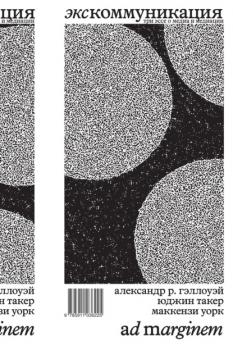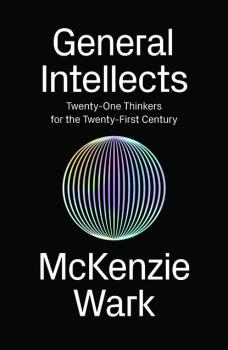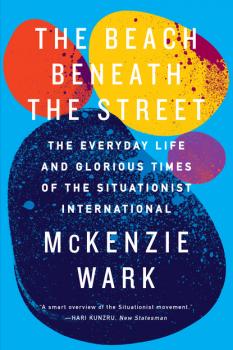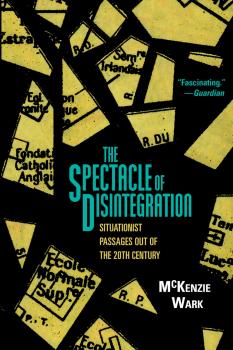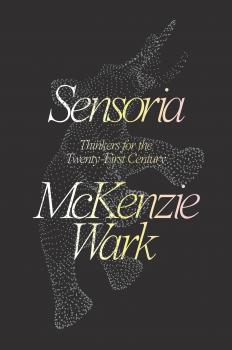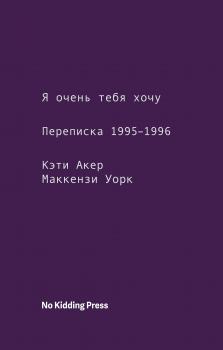Маккензи Уорк
Список книг автора Маккензи УоркЭкскоммуникация. Три эссе о медиа и медиации
Всегда на связи – таков императив современных медиа. Но что происходит, когда медиа перестают работать должным образом? Когда сообщения выходят за строгие рамки «от отправителя к получателю», выходят за рамки мира коммуникации как такового; сообщения, которые провозглашают: «Больше никаких сообщений»? В этой книге Александр Р. Гэллоуэй, Юджин Такер и Маккензи Уорк переворачивают наши привычные представления о медиа и медиации. Авторы исследуют невозможность коммуникации, неотъемлемую от самой ее сути – невозможность, которую они называют «экскоммуникацией».
General Intellects
A guide to the thinkers and ideas that will shape the future What happened to the public intellectuals that used to challenge and inform us? Who is the Sartre or De Beauvoir of the internet age? General Intellects argues we no longer have such singular figures, but there are, instead, general intellects whose writing could, if read collectively, explain our times. Covering topics such as culture, politics, work, technology, and the Anthropocene, each chapter is a concise account of an individual thinker, providing useful context and connections to the work of the others. McKenzie Wark’s distinctive readings are appreciations, but are nonetheless critical of how neoliberal universities militate against cooperative intellectual work that endeavors to understand and also change the world. The thinkers included are Amy Wendling, Kojin Karatani, Paolo Virno, Yann Moulier Boutang, Maurizio Lazzarato, Franco “Bifo” Berardi, Angela McRobbie, Paul Gilroy, Slavoj Žižek, Jodi Dean, Chantal Mouffe, Wendy Brown, Judith Butler, Hiroki Azuma, Paul B. Préciado, Wendy Chun, Alexander Galloway, Timothy Morton, Quentin Meillassoux, Isabelle Stengers, and Donna Haraway.
Molecular Red
Radical new critical theory for the twenty-first century. In Molecular Red, McKenzie Wark creates philosophical tools for the Anthropocene, our new planetary epoch, in which human and natural forces are so entwined that the future of one determines that of the other. Wark explores the implications of Anthropocene through the story of two empires, the Soviet and then the American. The fall of the former prefigures that of the latter. From the ruins of these mighty histories, Wark salvages ideas to help us picture what kind of worlds collective labor might yet build. From the Russian revolution, Wark unearths the work of Alexander Bogdanov—Lenin’s rival—as well as the great Proletkult writer and engineer Andrey Platonov. The Soviet experiment emerges from the past as an allegory for the new organizational challenges of our time. From deep within the Californian military-entertainment complex, Wark retrieves Donna Haraway’s cyborg critique and science fiction writer Kim Stanley Robinson’s Martian utopia as powerful resources for rethinking and remaking the world that climate change has wrought. Molecular Red proposes an alternative realism, where hope is found in what remains and endures.
The Beach Beneath the Street
The acclaimed, readable history of the Situationist International by the author of A Hacker Manifesto Over fifty years after the Situationist International appeared, its legacy continues to inspire activists, artists and theorists around the world. Such a legend has accrued to this movement that the story of the SI now demands to be told in a contemporary voice capable of putting it into the context of twenty-first-century struggles. McKenzie Wark delves into the Situationists’ unacknowledged diversity, revealing a world as rich in practice as it is in theory. Tracing the group’s development from the bohemian Paris of the ’50s to the explosive days of May ’68, Wark’s take on the Situationists is biographically and historically rich, presenting the group as an ensemble creation, rather than the brainchild and dominion of its most famous member, Guy Debord. Roaming through Europe and the lives of those who made up the movement—including Constant, Asger Jorn, Michèle Bernstein, Alex Trocchi and Jacqueline De Jong—Wark uncovers an international movement riven with conflicting passions. Accessible to those who have only just discovered the Situationists and filled with new insights, The Beach Beneath the Street rereads the group’s history in the light of our contemporary experience of communications, architecture, and everyday life. The Situationists tried to escape the world of twentieth-century spectacle and failed in the attempt. Wark argues that they may still help us to escape the twenty-first century, while we still can.
The Spectacle of Disintegration
Acclaimed author follows the work of the Situationist International after May 1968. Following his acclaimed history of the Situationist International up until the late sixties, The Beach Beneath the Street, McKenzie Wark returns with a companion volume which puts the late work of the Situationists in a broader and deeper context, charting their contemporary relevance and their deep critique of modernity. Wark builds on their work to map the historical stages of the society of the spectacle, from the diffuse to the integrated to what he calls the disintegrating spectacle. The Spectacle of Disintegration takes the reader through the critique of political aesthetics of former Situationist T.J. Clark, the Fourierist utopia of Raoul Vaneigem, René Vienet’s earthy situationist cinema, Gianfranco Sangunetti’s pranking of the Italian ruling class, Alice-Becker Ho’s account of the anonymous language of the Romany, Guy Debord’s late films and his surprising work as a game designer. At once an extraordinary counter history of radical praxis and a call to arms in the age of financial crisis and the resurgence of the streets, The Spectacle of Disintegration recalls the hidden journeys taken in the attempt to leave the twentieth century, and plots an exit from the twenty first.
Sensoria
As we face the compounded crises of late capitalism, environmental catastrophe and technological transformation, who are the thinkers and the ideas who will allow us to understand the world we live in? McKenzie Wark surveys three areas at the cutting edge of current critical thinking: design, environment, technology and introduces us to the thinking of nineteen major writers. Each chapter is a concise account of an individual thinker, providing useful context and connections to the work of the others. The authors include: Sianne Ngai, Kodwo Eshun, Lisa Nakamura, Hito Steyerl, Yves Citton, Randy Martin, Jackie Wang, Anna Lowenhaupt Tsing, Achille Mbembe, Deborah Danowich and Eduardo Viveiros de Castro, Eyal Weizman, Cory Doctorow, Benjamin Bratton, Tiziana Terranova, Keller Easterling, Jussi Parikka. Wark argues that we are too often told that expertise is obtained by specialisation. Sensoria connects the themes and arguments across intellectual silos. They explore the edges of disciplines to show how we might know the world: through the study of culture, the different notions of how we create such things, and the impact that the machines that we devise have had upon us. The book is a vital and timely introduction to the future both as a warning but also as a road map on how we might find our way out of the current crisis.
Я очень тебя хочу. Переписка 1995–1996 годов
Кэти Акер и Маккензи Уорк встретились в 1995 году во время тура Акер по Австралии. Между ними завязался мимолетный роман, а затем – двухнедельная возбужденная переписка. В их имейлах – отблески прозрений, слухов, секса и размышлений о культуре. Они пишут в исступлении, несколько раз в день. Их письма встречаются где-то на линии перемены даты, сами становясь объектом анализа. Итог этих писем – каталог того, как два неординарных писателя соблазняют друг друга сквозь 7500 миль авиапространства, втягивая в дело Альфреда Хичкока, плюшевых зверей, Жоржа Батая, Элвиса Пресли, феноменологию, марксизм, «Секретные материалы», психоанализ и «Книгу Перемен». Их переписка – это «Пир» Платона для XXI века, написанный для квир-персон, нердов и книжных гиков. «Я очень тебя хочу» – это текст зарождения, текст начала, заметки к короткому совместному путешествию двух икон современности.
